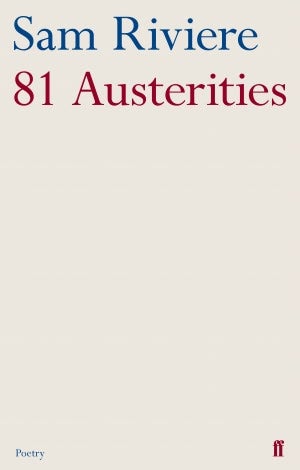
Your support helps us to tell the story
From reproductive rights to climate change to Big Tech, The Independent is on the ground when the story is developing. Whether it's investigating the financials of Elon Musk's pro-Trump PAC or producing our latest documentary, 'The A Word', which shines a light on the American women fighting for reproductive rights, we know how important it is to parse out the facts from the messaging.
At such a critical moment in US history, we need reporters on the ground. Your donation allows us to keep sending journalists to speak to both sides of the story.
The Independent is trusted by Americans across the entire political spectrum. And unlike many other quality news outlets, we choose not to lock Americans out of our reporting and analysis with paywalls. We believe quality journalism should be available to everyone, paid for by those who can afford it.
Your support makes all the difference.It may be hard to conceive of in end-stage austerity Britain, but back in 2010, the arts still received Government money.
Sam Riviere was one of the four young poets to benefit from the Arts Council-funded Faber New Poets scheme. Judging by this follow-up to his debut, the investment was a sound one, so it’s apt that his collection takes austerity policies as its inspiration.
Riviere’s work is certainly not “austere” in any other sense. Mostly written in the first person and full of chatty run-on lines and zeitgeist-y references, his poems read like an on-going conversation between friends.
"Premises, Premises" reports back on a gig, "Nobody Famous" is a series of captions from holiday pics on Facebook or Instagram: “This is me eating not 1 not 2 but 3 pancakes / this is me having Breakfast in America in paris” Are the repeatedly mentioned Jennys and Emmas current or former girlfriends we’re supposed to remember? Savvy readers know better than to confuse author and narrator, so why do these poems seem to invite that very confusion?
In 81 Austerities, it’s not just that the poems appear to communicate in the poet’s own voice, it’s that this voice (which even pops up in the idiosyncratic index ) is often the subject of the poems themselves, as if trying to convince of its own authenticity.
Several of the poems comment on poetry and culture. "The Sweet New Style" is sniffily sarcastic about the contemporary fondness for twee things. There is suppressed professional rivalry in "Adversity in the Arts" and anxiety about funding sprinkled throughout. "Crisis Poem", which opens the collection, asks whether capital is the “index of meaning”, while "Dream Poem" even includes its own in-built literary criticism (“In my dream the poem didn’t have / this assonance that’s creeping in”).
Self-reference may be par for the course for contemporary poets, but Riviere’s has taken his engagement with the modern world beyond posing and into formal experimentation. "Year of the Rabbit", a description of a trailer he’d make for an Updike book, if he was a conceptual artist, is as multimedia as ink words on a paper page can get.
It’s a sexy book – not only in the Coalition/Blair spin doctor sense of attractively modern, but literally too. Several poems, like "Clones" borrow and remodel the language of internet porn to occasionally shocking effect, but Riviere is at his cheeky, charming best when, as in “No Touching”, his language takes the long road round: “We will appear at the weddings/ of people we don’t care about / our faces radiant from fucking.”
Quotable and funny, this is the poetry of online dating profiles and witty Facebook status updates. His balance of accessibility and formal invention is what makes Riviere marketable, even in austerity Britain, but it’s also what makes him good.
Join our commenting forum
Join thought-provoking conversations, follow other Independent readers and see their replies
Comments